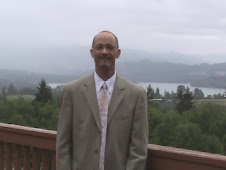Interpretivist Paradigm
1. What is the paradigm dialogue all about? What are the key elements of the debate?
Theoretical Paradigm’s in sociological science are important in helping to create the analytical structures needed in order to examine different ideas and concepts. As (Crotty 1998) suggests the landscape of sociological theory is rife with a maze of interpretations, terminology conflicts and evolutions, as well as outright contradictions making a systematic examination somewhat problematic. He goes further to offer four question related categories (Methods, Methodology, Theoretical Perspective and Epistemology) to provide the analytical structure needed in order to effectively examine the intricacies of each theoretical argument and their interrelated characteristics. The Burrell and Morgan text refers to the following four different main theoretical paradigms Radical Humanist, Radical Structuralist, Interpretivist, and Functionalist as the parameter boundaries of the paradigm debate. They provide a graphic representation of this boundary relationship in chapter one that demonstrates this relationship as well as providing visual learners like myself with increased tools for understanding the intricacies of these divergent yet overlapping theoretical orientations. The following citation clearly explains their rational for the four paradigm metric “We regard our four paradigms as being defined by the very basic meta-theoretical assumptions which under write the frame of reference, mode of theorizing, and modus operandi of social theorists who operate within them” (Burrell & Morgan 1979). This metric structure enables researchers to ground their academic inquiry within theoretical history thus allowing a macro level perspective that add depth, credibility and validity to sociological inquiry.
2. In what ways is this debate relevant or important today?
The important questions that these paradigms illuminate are timeless and universal to humanity. In contemporary society these questions maintain their universal relevance and yet something is different today. I would posit that technologies effect upon almost every aspect of industrialized societies and to lesser extent third world nations has forced us to re-examine the theoretical assumptions that have underpinned our sociological orientations. The ability to connect, communicate, collaborate, and create new sociological structures oblivious of international, political or religious boundaries or limitations is forcing theoretical scientists and scholars to re-examine ideas and develop new ones. This process of re-examination and creation is helping to generate the energetic synthesis needed to develop new perspectives and ideas which may address advances in technology and communication.
3. What does all this mean for my own research?
As a researcher in training my journey should begin with an examination of the historical theories that will begin to flesh out the parameters of my academic inquiry. I have a pretty good understanding of what I am interested in examining, the reasons for the examination and well as what I am hoping to achieve. Yet I need to create a formal structure that is grounded in such a way as to be credible, verifiable and repeatable. The examination of the four different paradigms will enable me to divine the boundaries of my questions within a theoretical framework that meets the above requirements.
4. Reflecting on your own organizations, is there a particular paradigm that predominates? How is this manifested in your work world?
This is a very interesting question, and one that I can’t completely answer at this time. Being in the Investment and Construction industries I can tell you that we have elements of all four paradigms. We use the Functionalist Approach to generally understand and address problems in more formal ways, taking this knowledge to develop static analytical procedures and processes that hopefully result in increasing business. The Radical Humanist perspective holds very little sway yet we can parallel it to be a breakdown in the powers that control the industries so we as a competing business can prosper. The Radical Structuralist perspective does not really apply to our industries except dealing with labor unions and governmental regulation and interference. It is the Interpretive Perspective that really speaks to our companies and their economic processes. Our personal relationships define our business relationships within our industries. These networks and the individuals that occupy the intersection points provide us with the strategic and analytical information we need in order to be successful. We consciously view our relationships from these individuals’ points of view, taking into account the dynamics of personal interaction, psychology, sociology and leadership to create strong networks of likeminded individuals who construct social and professional meaning from these relationships. The intricacies of human nature are endless and yet understanding them is critical to understanding our clients, employees and those who support them. While I don’t understand fully the boundaries and parameters of this paradigm, it does seem to apply to my professional situation in a more comprehensive way that the previous three.
5. What is your preferred orientation/paradigm and why? Is there a disjuncture between the “sets of lenses” or paradigm you use at work and the one you use in your private life or in personal relationships?
This is another wonderful and thoughtful question that I cannot answer fully at this time. I like to see myself at generally in the Interpretivist paradigm individually, and yet also have elements of the other three. My personal life is much more informal than my professional life but both are primarily grounded in personal relationships and the networks that connect and them. One of the things that conflict me personally is that I see elements of the other paradigms in my personal and professional lives. Yet the texts suggest that each is mutually exclusive to each other. How can this be? Why can’t elements of each be present in the many different aspects of our personal and professional lives? This is a question that I am very interested in examining further.
References
Crotty, M. (1998). The foundations of social research. London: SAGE Publications.


